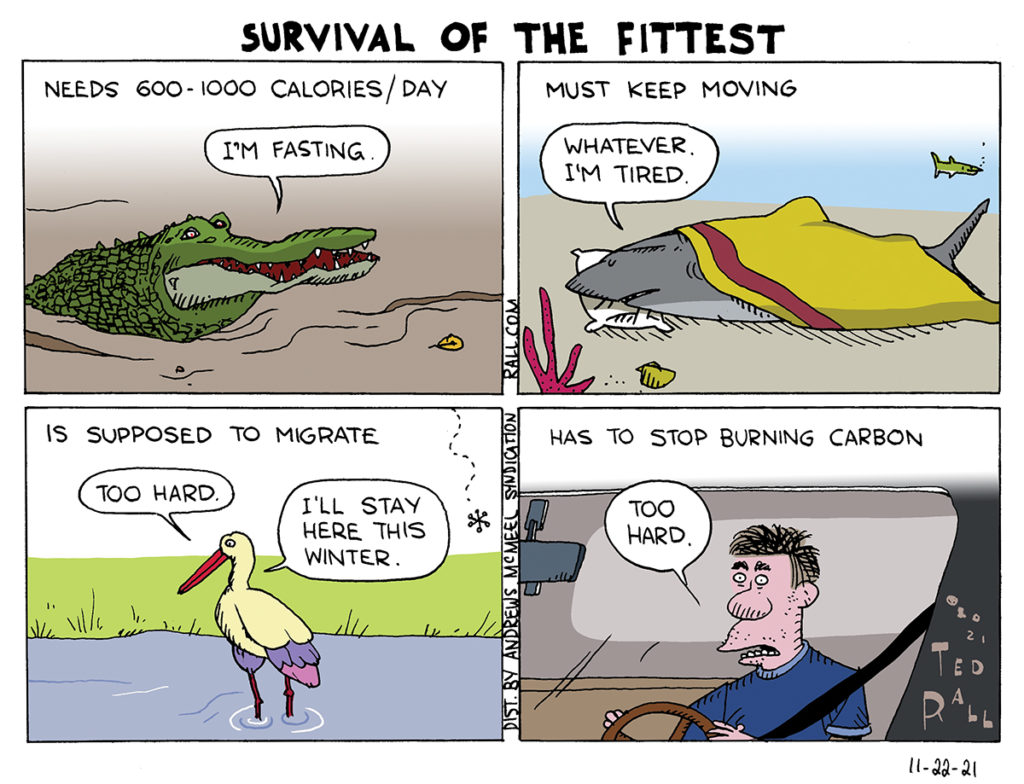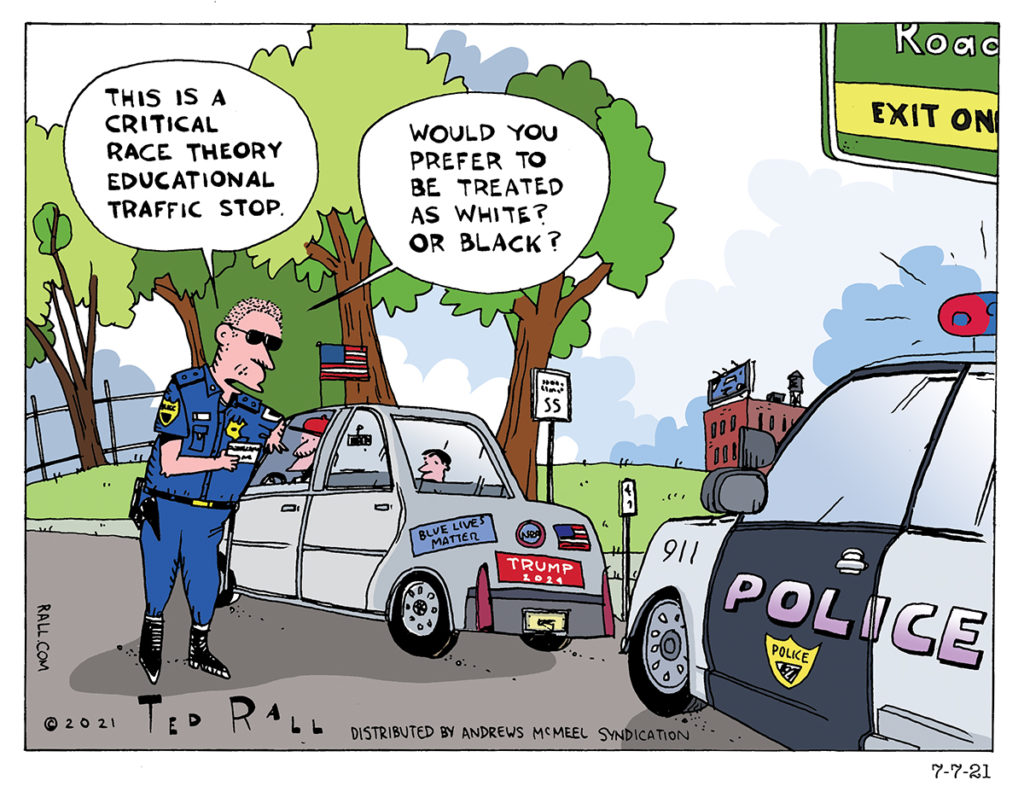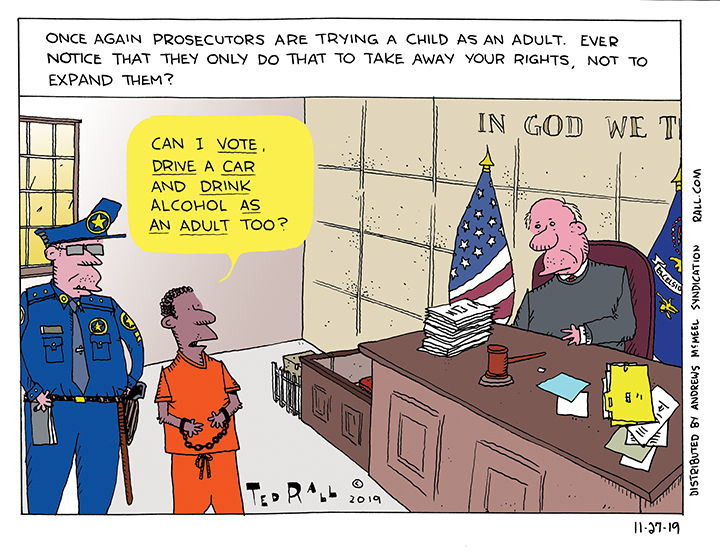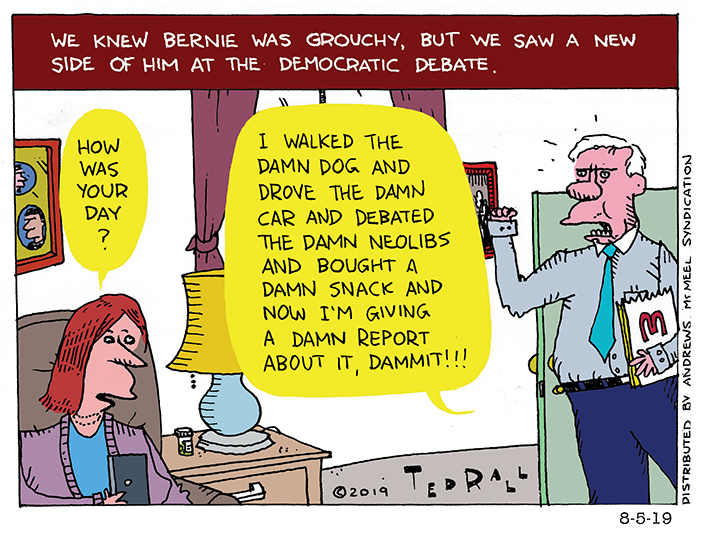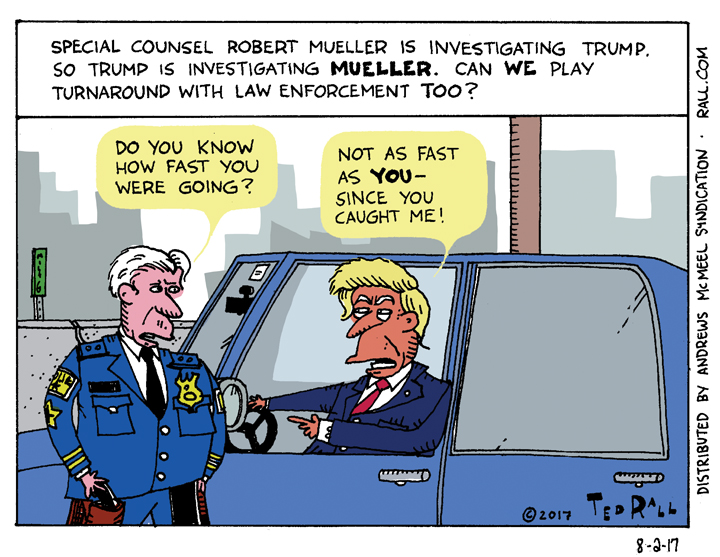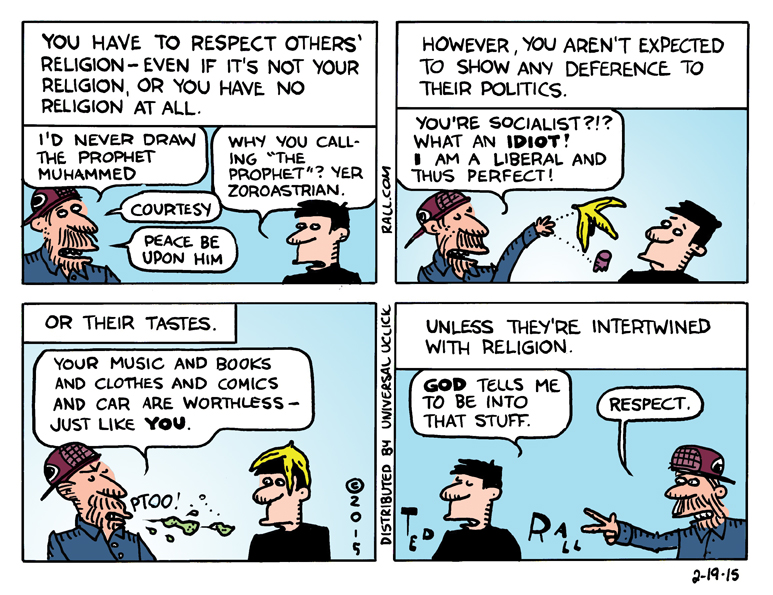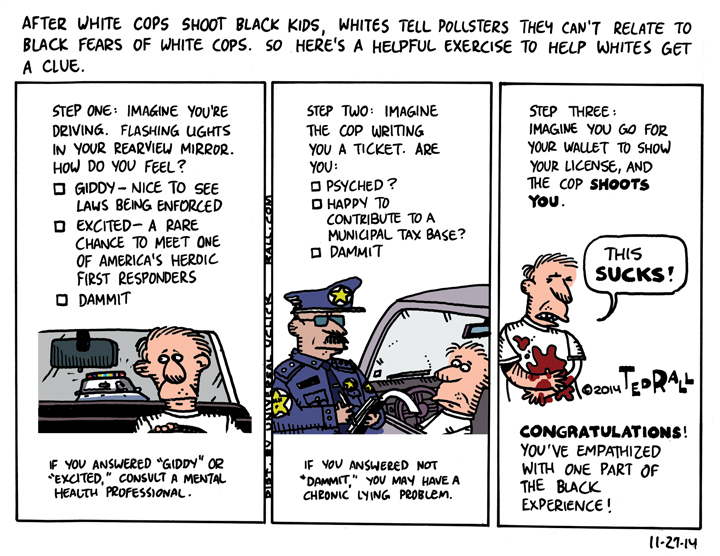No animal would choose not to do what it needs to survive. No animal is that stupid, except human beings. The failed COP26 climate conference provides more proof that we’re too stupid or lazy to stop killing the planet’s environment we need to live by transitioning to sustainable energy sources.
SYNDICATED COLUMN: Security Is Ruining the Internet

Another major cyberattack, another wave of articles telling you how to protect your data has me thinking about European ruins. Those medieval fortresses and castles had walls ten feet thick made of solid stone; they were guarded by mean, heavily armored, men. The barbarians got in anyway.
At the time, those invasions felt like the end of the world. But life goes on. Today’s Europeans live in houses and apartment buildings that, compared to castles of the Middle Ages, have no security at all. Yet: no raping, no pillaging. People are fine.
Security is overrated.
The ransomware attack that crippled targets as diverse as FedEx and British hospitals reminds me of something that we rarely talk about even though it’s useful wisdom: A possession that is so valuable that you have to spend a lot of money and psychic bandwidth to protect it often feels like more of a burden than a boon.
You hear it all the time: Change your passwords often. Use different passwords for different accounts. Install File Vault. Use encrypted communications apps. At what point do we throw up our hands, change all our passwords to “password” and tell malicious hackers to come on in, do your worst?
I owned a brand-new car once. I loved the look and the smell but hated the anxiety. What if some jerk dented it? Sure enough, within a week and the odometer reading in the low three digits, another motorist scratched the bumper while pulling out of a parallel parking space. I was so determined to restore the newness that I paid $800 for a new bumper. Which got scratched too. That was 13 years, 200,000 miles and a lot of dings ago. Still drive the same car. I don’t care about dents.
I’m liberated.
The Buddha taught that material attachments bring misery. He was right. During the 1980s crack epidemic addicts stole car stereos to finance their fixes. To avoid smashed windows, New Yorkers took to posting “No Radio” signs on their cars. But the really smart drivers’ signs read “Door unlocked, no radio.” It worked.
Hackers, we’re told, are ruining the Internet. I say our reaction to hack attacks has ruined it. It’s like 9/11. Three thousand people died. But attacking Afghanistan and Iraq killed more than a million. We should have sucked it up instead.
Security often destroys the very thing it’s supposed to protect. Take the TSA — please! Increased airport security measures after 9/11 have made flying so unpleasant that Americans are driving more instead. Meanwhile, “civil aviation” flights out of small airports — which have no or minimal security screenings — are increasingly popular. So are trains — no X-ray machines at the train station, either. Get rid of TSA checkpoints at the airport, let people walk their loved ones to the gate so they can wave goodbye, and I bet more people would fly in spite of the risk.
It’s not just government. Individuals obsess over security to the point that it makes the thing they’re protecting useless.
For my 12th birthday my dad gave me a 10-speed road bicycle. I still have that Azuki. It weighs a ton but it runs great. It’s worth maybe $20.
Bike theft is rife in Berkeley and Manhattan, but I tooled around both places on that banana yellow relic of the Ford Administration without fear of anything but the shame of absorbing insults from kids on the street. I often didn’t bother to lock up my beater. Never had a problem.
In my early 40s and feeling flush, I dropped $2400 on a royal blue Greg LeMond racing bike. Terrified that my prize possession might get stolen, I only ride it to destinations I deem ridiculously safe or where I’ll only have to leave it outside for a few minutes. So I hardly use it.
I’m an idiot.
Nice things are, well, nice to have. But they’re also a pain in the ass. In college one of my girlfriends (who I am not suggesting was a “thing,” obviously, and whom equally obviously I never thought I “had” in any ownership-y sense) had dazzling big blue eyes and golden blonde hair down to her waist and was so striking that guys literally walked into lampposts while gawking at her. Being seen with her was great for my ego. But every outing entailed a risk of violence as dudes catcalled and wolf-whistled; chivalry (and my girlfriend) dictated that I couldn’t ignore all of them. I sometimes suggested the 1980s equivalent of “Netflix and chill” (Channel J and wine coolers?) rather than deal with the stress. (We broke up for other reasons.)
So back to the big ransomware attack. What should you do if your ‘puter locks you out of your files unless you fork over $300? Wipe your hard drive and move on.
Back up regularly, Internet experts say, and this threat is one reason why. With a recent backup you can usually wipe your hard drive and restore your files from a backed-up version that predates the virus. Take that, villains! But no one does.
Meanwhile, our online lives are becoming as hobbled by excessive security as the airlines. Like the countless locks on Gabe Kaplan’s Brooklyn apartment door in “Welcome Back Kotter,” two-step authentication helps — but at what cost? You have to enter your password, wait for a text — if you’re traveling overseas, you have to pay a dollar or more to receive it — and enter it before accessing a site. Tech companies force us to choose a new password each time we forget the old one. Studies show that makes things worse: most users choose simpler passwords because they’re easier to remember.
The only thing to fear, FDR told us, is fear itself. What if we liberated ourselves from the threat of cyberattack — and a ton of work maintaining online security — by not having anything on our Internet-connected devices that we care about?
This would require a mental shift.
First, we should have fewer things online. When you think about it, many devices are connected to the Internet for a tiny bit of convenience but at significant risk to security. Using an app to warm up your house before you come home is nifty, but online thermostats are hardly worth the exposure to hackers who could drive up your utility bills, start a fire or even cause a brownout. Driverless cars could be remotely ordered to kill you — no thanks! I laugh at the Iranian nuclear scientists who set back their nation’s top-secret research program for years because their desire to cybercommute opened their system to the Stuxnet attack. Go to the office, lazybones!
The Internet of Things needs to be seriously rethought — and resisted.
As for your old-fashioned electronic devices — smartphones, tablets and laptops — it might be time to start thinking like a New Yorker during the 1980s. Leave the door unlocked. Just don’t leave anything in your glove compartment, or on your hard drive, that you would mind losing.
(Ted Rall (Twitter: @tedrall) is author of “Trump: A Graphic Biography,” an examination of the life of the Republican presidential nominee in comics form. You can support Ted’s hard-hitting political cartoons and columns and see his work first by sponsoring his work on Patreon.)
SYNDICATED COLUMN: Hillary Clinton Runs First, Thinks Last

The revealing headline: “Hillary Clinton Will Run; She Still Has to Explain Why.”
The money quote from the story beneath that headline: “For months, Mrs. Clinton has lamented the stagnant wages holding back lower-income people and the concentration of wealth among a sliver of the wealthiest, a sentiment echoed in her first public remarks as a 2016 candidate.”
Linger on that sentence’s introductory phrase: “For months.”
Months?
!
What?
Hillary has been a political animal for decades. She’s been a possible future presidential candidate since at least 1996 — the year she last drove a car. She’s just getting around to figuring out what her politics are?
(By the way and speaking of which, someone in Hillaryworld needs to clue in She-Who-Must-Be-Driven to basic automotive vernacular. When one is a passenger, one does not say, as Secretary Clinton did yesterday, “when I was driving here.” Driving is something one does, not something that is done to you. Unless you are actually, you know, driving, the correct phrase would be: “when I was riding here.” Unless, of course, this is one of those misremembering “dodging sniper fire” senior moments.)
Maybe I took high school civics class too seriously, but I thought the correct order was:
First, come up with list of ideas, policies, and bills that you would, as President of the United States, promote, enact and propose.
Second, run for President of the United States.
This, however, is no longer how a professional political class so removed from the lives of the average citizen that they not only don’t drive but don’t even know words about driving — who think being worth $25 million equals “dead broke,” and that earning $12 million a year makes you “not truly well off” — sees it. First, they fundraise. Second, they run. Third, they figure out what they believe in.
With a campaign warchest likely to set new records, the task of selling influence in a 2017-2021 first term is well underway. Unless she dies or gets hosed by a new scandal, Hillary has the Democratic nomination all sewn up. Which means it’s time for the last priority: ginning up a platform.
At this writing, Clinton says she wants to be a “champion” for “everyday Americans.” What does that phrase even mean? As opposed to what — Americans who live outside the standard Sunday-to-Saturday space-time continuum? Is there some special eighth-and-a-halfth day for one percenters?
There are, she told Iowans, “four big fights that I think we have to take on.”
Hillary’s big fight #1: “We need to build the economy of tomorrow, not yesterday.” Question: will there be flying robots? If there are flying robots, I’m in! But not flying robot murderers, like we use to kill Pakistanis and Yemenis. Too much tomorrow.
Big fight #2: Strengthening families. “When families are strong, America is strong.” You’ve been warned, single people who drain America’s strength — Hillary is coming for you! “Because it’s your time. And I hope you’ll join me on this journey.” Hell-o, Oprah!
Big fight #3: Campaign finance reform. “We need to fix our dysfunctional political system and get unaccountable money out of it once and for all – even if that takes a constitutional amendment.”
Big fight #4: National security. “We need to protect our country from the threats that we see, and the ones that are on the horizon.”
With all due respect — in other words, none — Hillary’s “platform” reads like a mash-up of Dick Morris’ focus-grouped pabulum and a schoolchild answering test questions about a book she didn’t read.
The “big fight” thesis gets an F: Who’s against “an economy of tomorrow”? Does anyone oppose stronger families? If a presidential candidate has ever run in favor of letting threats go unanswered, it’s news to me.
Of Hillary’s “big four fights,” only a constitutional amendment to reverse the Citizens United decision has substance. But campaign finance reform is a low priority for Americans. What Americans care most about, polls have shown consistently, is the economy. People want more jobs, higher wages, better job security.
In all fairness, Hillary isn’t the only run-first-think-second presidential contender. With the exception of Rand Paul, there isn’t much beef on the Republican side either.
Still, Hillary’s lameness towers above the rest if for no other reason than the fact that she’s had at least 20 years to think about what she’d do as president. If this is all she can think up after all this time, how slowly will she react when she gets that hotline phone call at 3 a.m.?
(Ted Rall, syndicated writer and the cartoonist for The Los Angeles Times, is the author of the new critically-acclaimed book “After We Kill You, We Will Welcome You Back As Honored Guests: Unembedded in Afghanistan.” Subscribe to Ted Rall at Beacon.)
COPYRIGHT 2015 TED RALL, DISTRIBUTED BY CREATORS.COM

